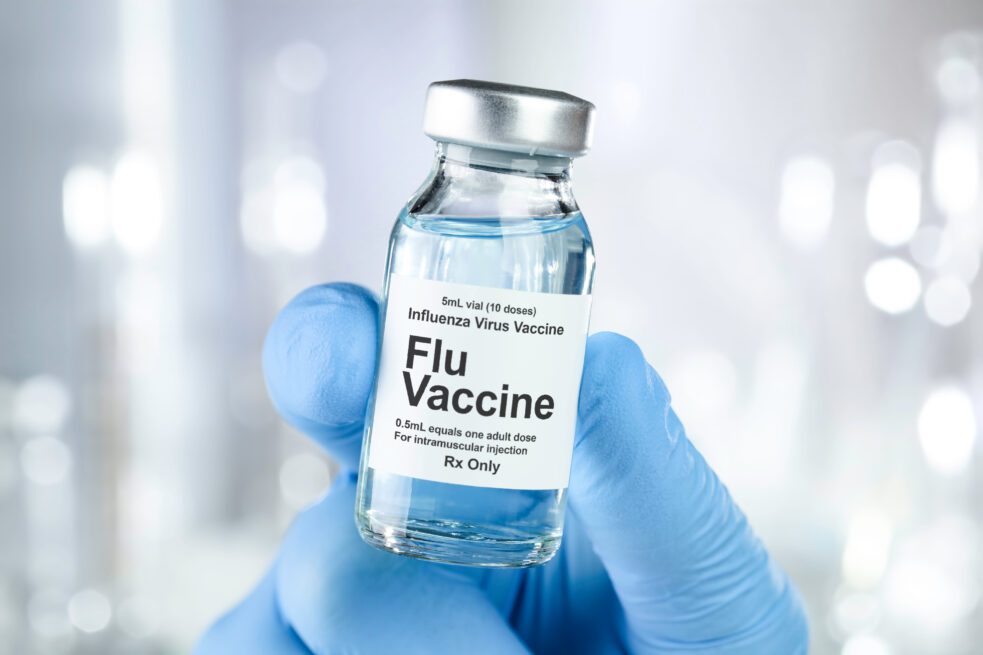It’s that time of the year again… time for everyone to get their flu shot. So what are you afraid of?
Last fall I was asked to give the flu shot to a father and his two sons. Scott, age 12, and James, his younger brother, were telling their father to go first. As soon as I began rolling up dad’s sleeve, James got down on the floor in the corner of the room. He closed his eyes and covered his ears so he couldn’t see the needle or hear what was going on. James began crying while Scott sat in the chair. Scott was surprised when I quickly gave him the injection and told him I was finished.
James reluctantly climbed into the chair and I asked him what he was afraid of. He said he wasn’t really sure. He “just thought it was going to be bad.” I rolled up his shirtsleeve and quickly performed the injection. James began to smile and exclaimed, “I thought that was going to be bad, but it wasn’t bad at all.”
So what makes you afraid to get a flu shot? Most of the time those fears are based on myths, half-truths or fictitious ideas you may have heard or read about. I’d like to address some of these and explain why getting a flu shot is good not only for your health, but for others as well.
‘I’ll get the flu from the shot’
You cannot get the flu from receiving a flu vaccination. Injectable flu vaccines are made from inactivated or “dead” flu viruses or recombinant DNA antigens that do not contain the flu virus at all. The worst that you may experience is a little soreness or redness, headache, low-grade fever or achiness for a day or two. But it’s much better than getting the flu later on and missing work. Remember, it takes several weeks after your flu shot for your body to build immunity, and you CAN get the flu if exposed during this time period. This is why it’s important to get a flu shot as soon as they are available – and they are now.
‘I’ll get mercury poisoning – or worse – from a flu vaccination’
Nearly all of the flu vaccines available today are single-use syringes or vials that contain no mercury compounds, including thimerosal, as a preservative.
‘I may get nerve damage or Guillain-Barré syndrome (GBS) after flu vaccination’
Fear of GBS mounted after the swine flu vaccination program in the fall of 1976, but subsequent studies have shown “no increased risk” with later influenza vaccines, according to the Guillain-Barre Syndrome Foundation. The risk is less than one in a million.
‘The flu shot doesn’t work’
There is no guarantee of perfect immunity from a flu shot. However, it will reduce your risk of getting the flu by up to 60%. If you do get the flu, having had the shot will at least greatly reduce the severity of symptoms.
‘Nobody ever dies from the flu’
This is a misleading statement. Most of the time when the flu causes death, it does so indirectly through other complications, and those causing tens of thousands of people to die each year. The flu increases the risk of getting bacterial pneumonia, which can be deadly, especially in children or the elderly. Other causes of death associated with the flu are inflammation of heart, brain or other tissues leading to organ failure. These are the causes that show up on the death certificate, not the flu.
‘The flu vaccine isn’t perfect, but it’s still worth getting’
Hopefully it will keep you from getting the flu. At the least it will greatly reduce the symptoms if you do get the flu, and you’ll be less likely to have severe complications like pneumonia. Plus, if you don’t get the flu, you can’t pass it on. So you will help keep other people from getting sick – including those who may become seriously ill or die from flu complications.






